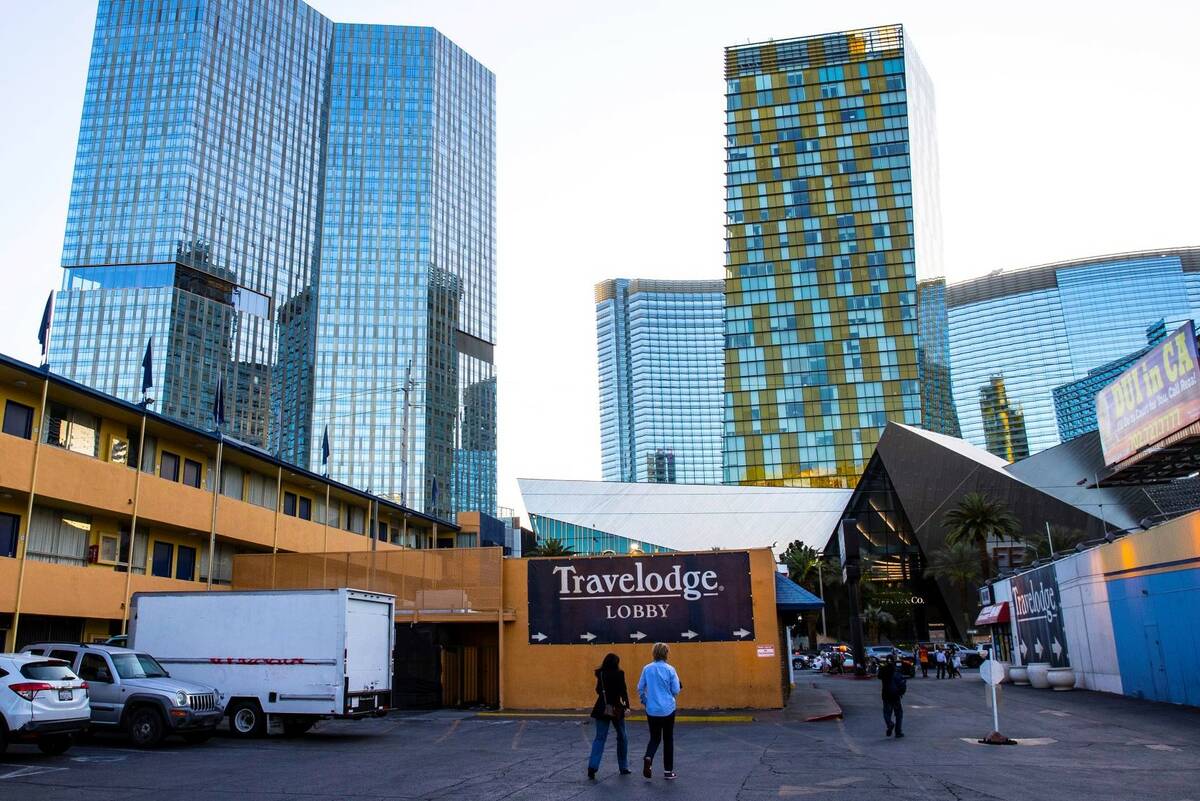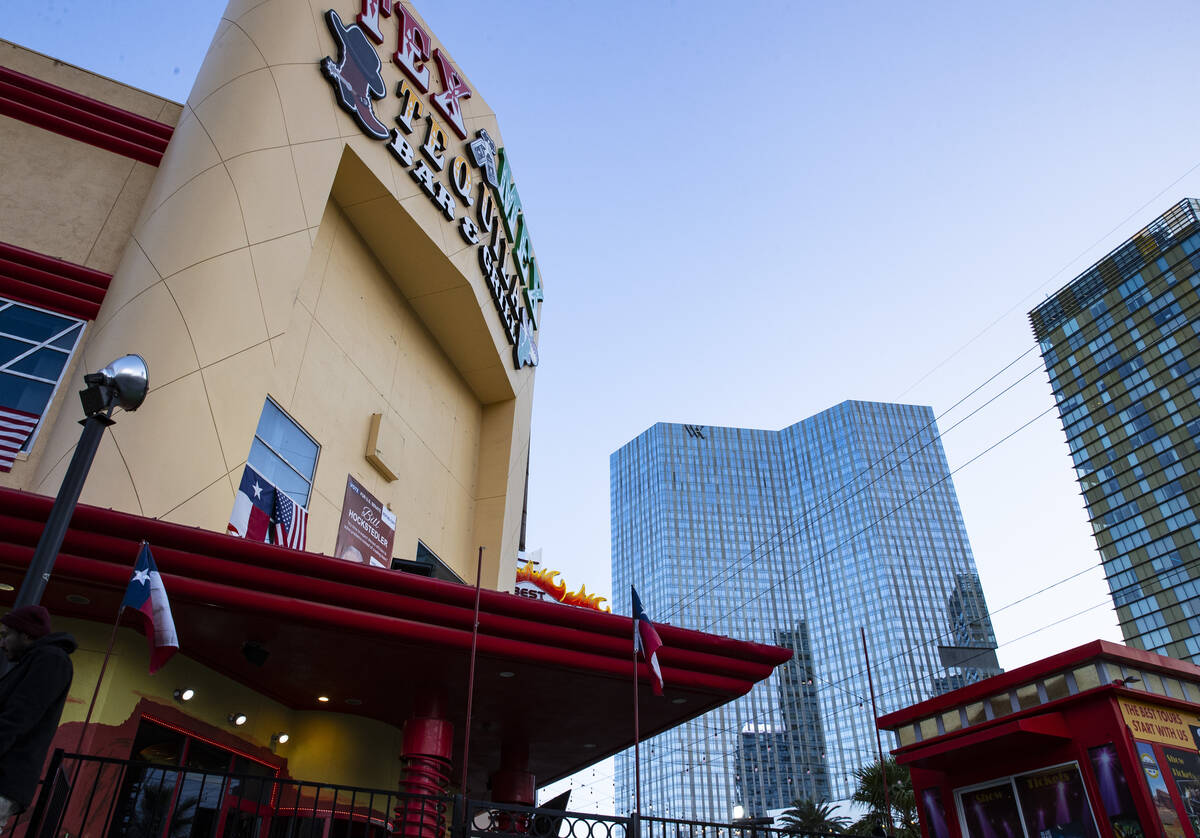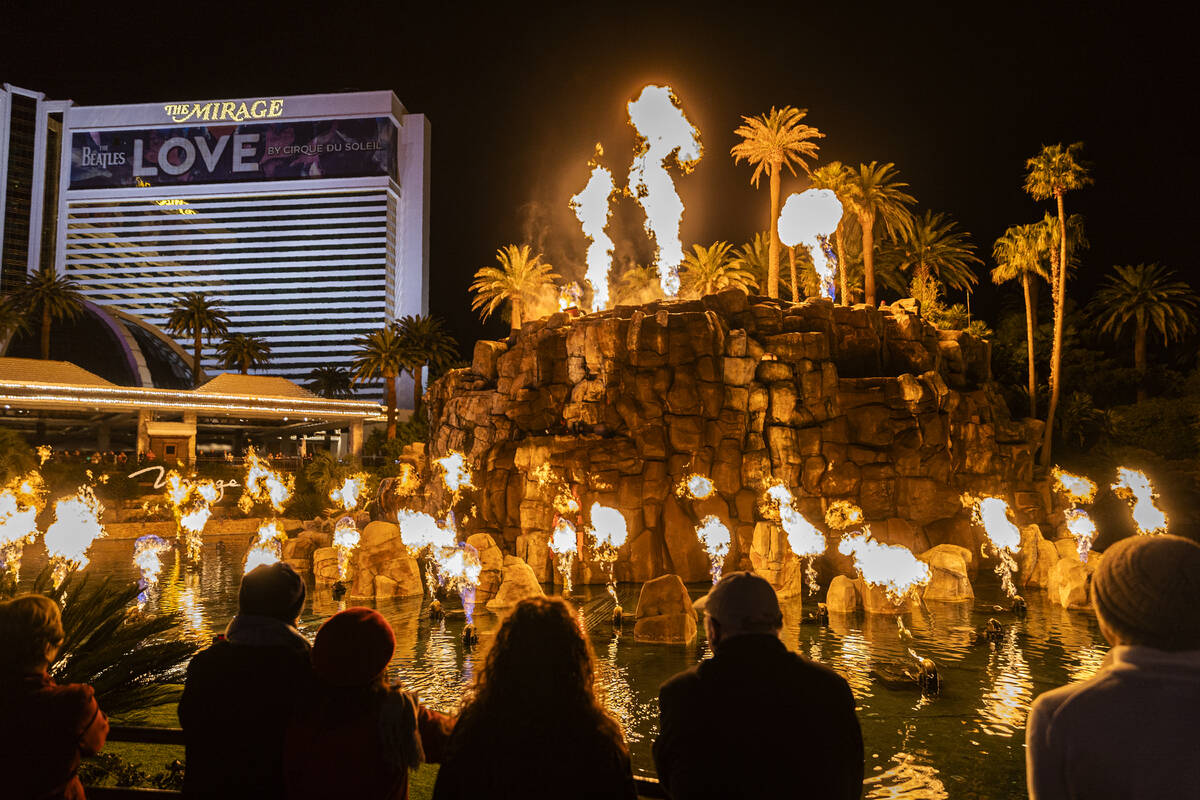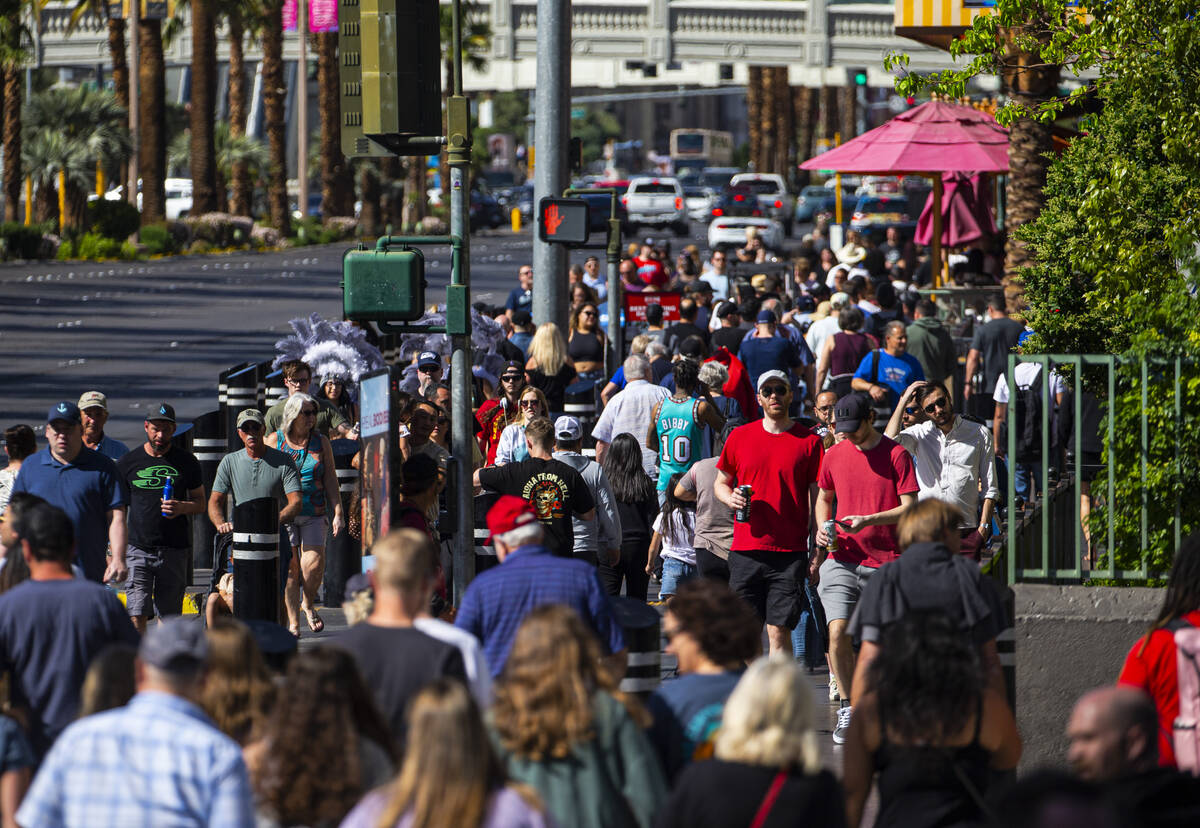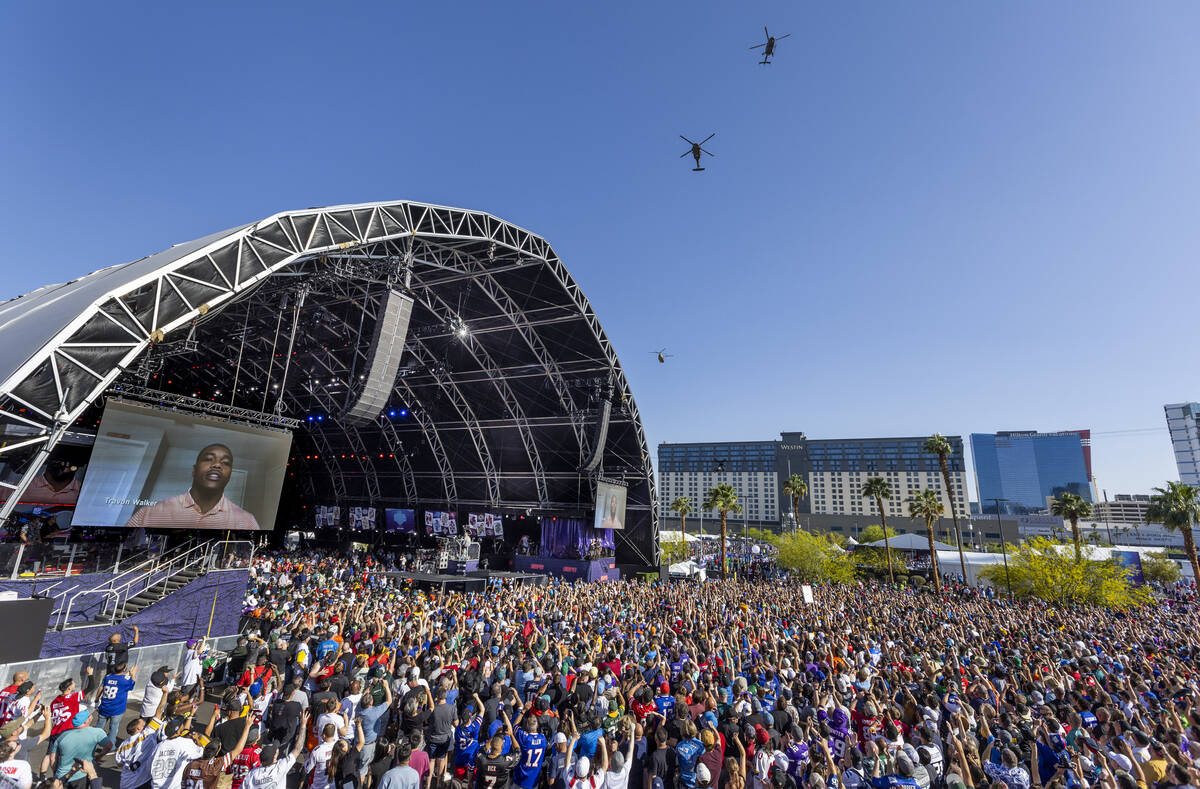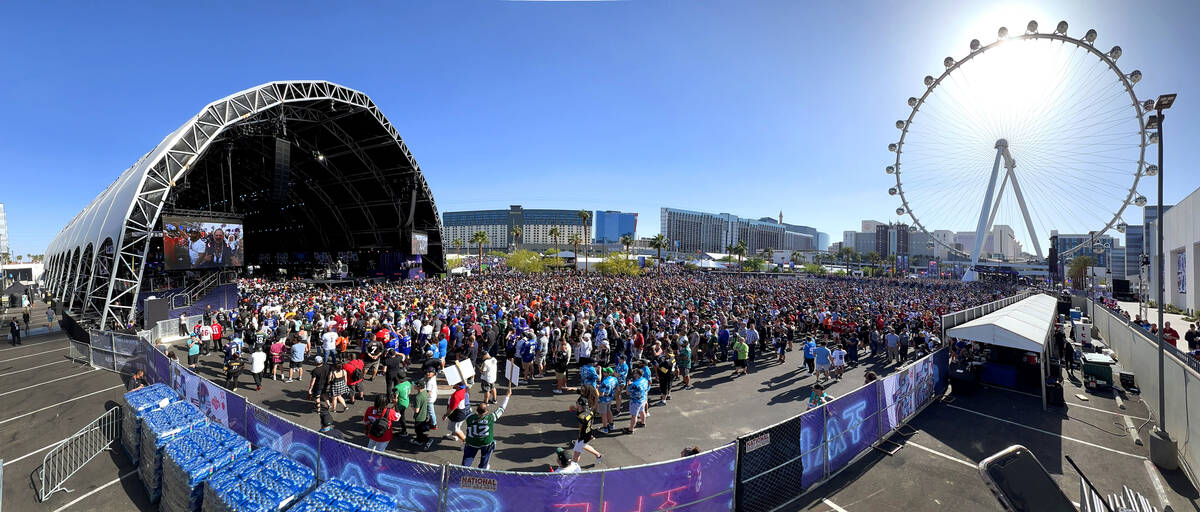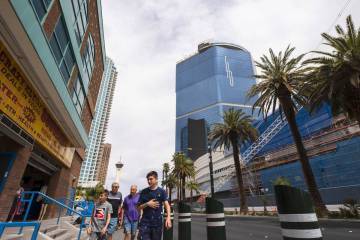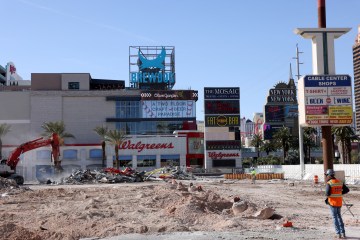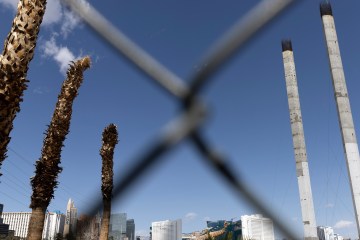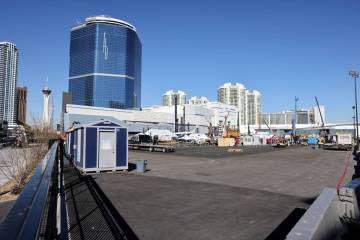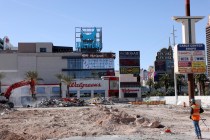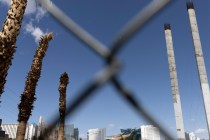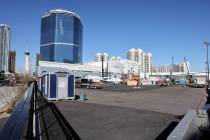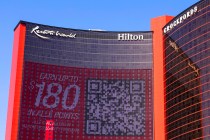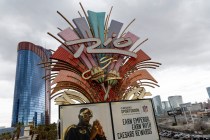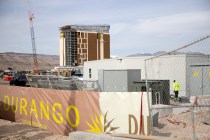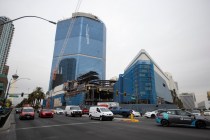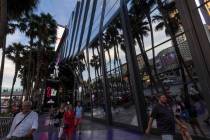Strip real estate deals gaining speed as tourism bounces back
In the not-too-distant past, Las Vegas Boulevard was an eerily quiet ghost town.
Casinos were under state-ordered lockdown over the coronavirus outbreak, and tourism, Southern Nevada’s main financial engine, had largely ground to a halt.
Today? The Strip is jammed with people again, casinos are raking in mountains of cash — and real estate activity in the corridor is gaining momentum.
Over the past year or so, Las Vegas has seen a rising tally of sales and construction plans involving vacant land, retail properties and hotels on or near the Strip.
In the latest transaction, the company behind Formula One said Friday it is buying 39 acres east of the Strip for $240 million. It did not provide long-term plans for the site but outlined the purchase after F1 announced in late March it will hold a race on the Strip next year.
America’s gambling capital is no stranger to high-priced real estate deals, and while Las Vegas is filled with massive hotels and other over-the-top projects, it also has a long history of developers pitching big plans and never following through.
But real estate deals seem to be picking up around Las Vegas Boulevard as tourism bounces back from the catastrophic drop-off of 2020.
Houston billionaire Tilman Fertitta, for instance, is in the process of acquiring around 6 acres on the Strip for more than $200 million with plans to build an upscale hotel, people familiar with the matter recently told the Review-Journal.
Las Vegas real estate firm The Siegel Group purchased roughly 10 acres on and near the north Strip for $75 million last month and is eyeing a project that could include a hotel-casino, condo units and retail.
Also, live-entertainment firm Oak View Group announced plans in late March for an estimated $3 billion complex south of the Strip with an arena, hotel-casino and amphitheater, and Hard Rock International said in December that it’s buying The Mirage’s operations for more than $1 billion in cash and aims to build a guitar-shaped hotel tower on the Strip.
Other deals announced last year have pushed ahead as well. Among them: Casino landlord Vici Properties completed its $17.2 billion buyout of MGM Resorts International’s real estate spinoff last week, giving the buyer several more hotel properties on the Strip.
Vici now owns 660 acres along the corridor and, according to CEO Ed Pitoniak, has become “the leading real estate owner” on what “we believe is the most economically productive street in the world, the Las Vegas Strip.”
With all this cash flowing around, some might think back to the go-go days of the mid-2000s, when easy money inflated the real estate market until, of course, it burst and the broader economy collapsed.
Back then, Las Vegas was ground zero for America’s real estate boom and bust, and the Strip was by no means spared the financial carnage as big projects were halted and property values plunged.
More than a few people contend the U.S. economy is currently overheated, though for now, there’s no way to tell what direction it will go, let alone how, or if, it would affect real estate on the Strip.
But with visitors streaming back to Las Vegas, developers and others in this highly lucrative and ultra-competitive tourism market are doing what often just seems normal here: buying and building big real estate.
Contact Eli Segall at esegall@reviewjournal.com or 702-383-0342. Follow @eli_segall on Twitter.



